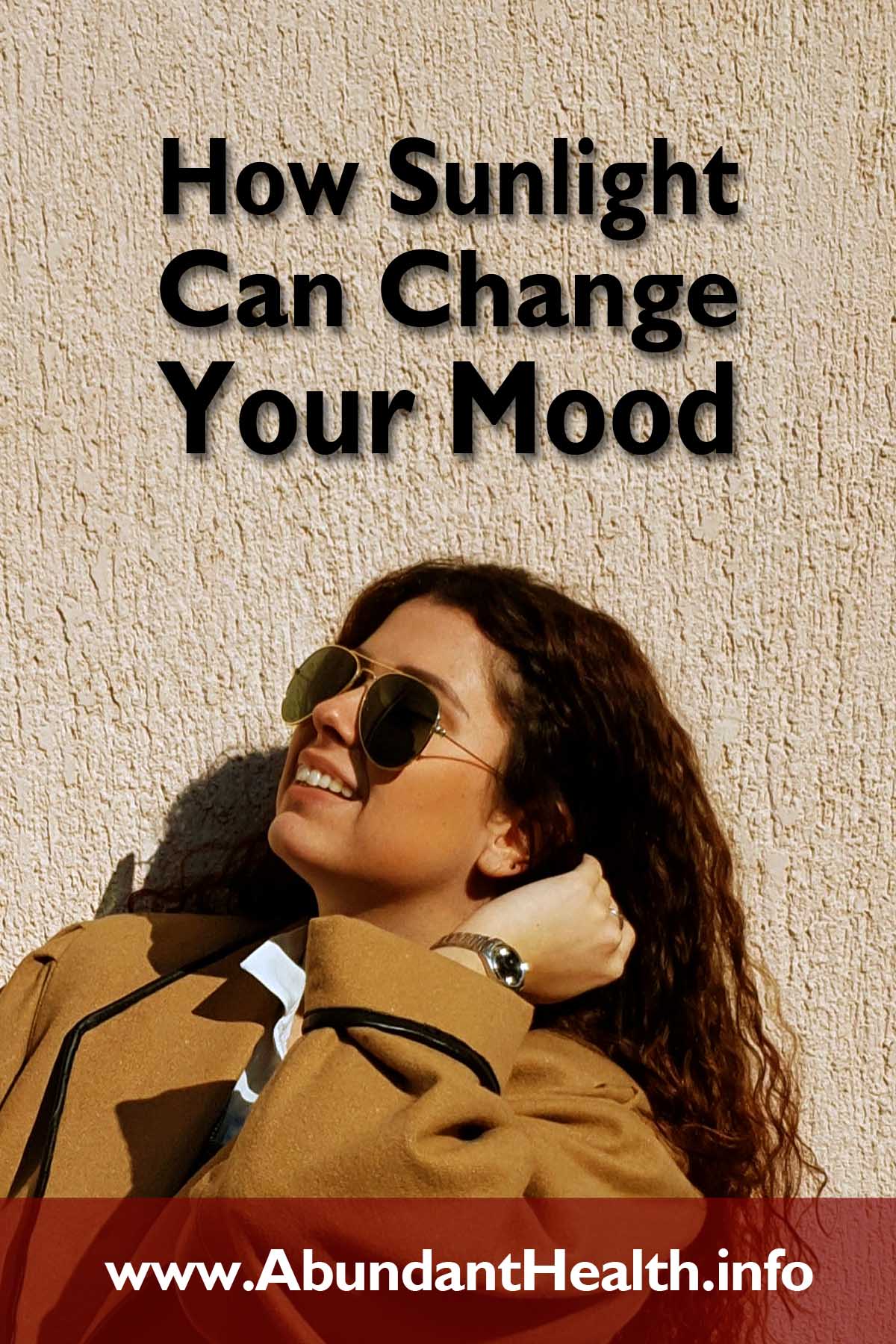Do I need to sunbathe? Vitamin D prevents which diseases? Does sunlight have a good effect on our mood? What are the signs that you may be deficient in Vitamin D?

We know that sunlight is critical to our health linked to vitamin D. But what about our mood? There is vitamin D2 which is called ergocalciferol, and D3 called cholecalciferol. Vitamin D2 is found in a limited number of foods, while D3 is absorbed by the body when the skin is exposed to sunlight. Both are converted into the active form which is used by the body and stored in the liver and kidneys.
When calcium levels in the body are reduced, the parathyroid glands, located in the neck, release a hormone that stimulates the kidneys to convert vitamin D into its most active form, aiding in the absorption of calcium and phosphorus. Our vitamin D requirement is 5 micrograms per day, this in adults weighing less than 200 lbs (90 kg).
A lack of vitamin D causes osteoporosis, which is a progressive decrease in bone density, with an increased chance of fractures, as bones become more porous and less resistant. Osteoporosis is more common in the elderly. A tip: if you are diagnosed with osteoporosis and have been prescribed to take calcium orally, know that this alone is not enough to resolve it. It is necessary to practice some exercise as well. Taking a lot of calcium and not doing any kind of physical activity is a message that bones interpret as we don’t need to be strong.
And the opposite is true. As you engage in regular physical activity, this will signal your bone cells to absorb calcium, because your message to them through exercise will be this: we need strong bones. So take calcium, but engage in some form of physical activity, at least three times a week.

Lack of vitamin D, in addition to osteoporosis, also produces rickets, which is characterized by insufficient mineralization of the bones, affecting children and adolescents. Symptoms are stunted growth, bowed legs, weakness and pain in the spine, pelvis and legs. Studies show that the absence of vitamin D, can facilitate the emergence of certain types of cancer, cardiovascular disease, hypertension or high blood pressure, multiple sclerosis, rheumatoid arthritis, type 1 diabetes among others.
About 90% of the vitamin D in our body is obtained from exposure to sunlight, which is converted from cholesterol in the skin. Normal doses of vitamin D can be obtained with direct exposure to the sun for 10 or 15 minutes daily, through the action of ultraviolet rays, which are also bactericidal. So, if you have a wound on your skin, expose that wound to sunlight as this will help it fight off infections and heal.
Have you ever heard people say, or maybe it happens to you that the cloudy weather with overcast makes you so sad, down and discouraged? There is a type of depression, which is a seasonal depression, whose scientific name is seasonal affective disorder. There are people who have depressive symptoms in autumn or early winter, and there are some who also have summer depression, starting in late spring or early summer. Summer depression is very rare, while winter depression is far more common.
Seasonal depression happens every year, always around the same time. The one that starts in winter is more frequent in countries with less sunlight throughout the year, with darker days and more rigorous winter. It seems that the farther a person lives from the equator, the greater number of people experience this type of suffering. That’s why it’s more common for people in Canada, Norway or Russia to have this type of depression than in tropical countries.

One theory says this is because sunlight activates brain hormones, which help maintain a happy mood. In a place called Fairbanks, Alaska, on winter days, the time span between sunrise and sunset is a little less than 4 hours. Imagine living a day with only 4 hours of natural light! With this great lack of sunlight, it would be logical to think that a good part of the population would have to have the winter depression. But it turns out that it is actually not that much. One study found that about 9% of Fairbanks residents had seasonal affective disorder, while this type of depression occurs in 1% in tropical countries.
The most common symptoms of seasonal winter depression are: more sleep, that is, the person sleeps more hours a day without feeling rested; increased appetite, desire to eat more carbohydrates, chocolate and fatty foods, difficulty getting out of bed in the morning, loss of energy, feeling of fatigue, impaired concentration, social isolation, irritability, constant sadness, among other symptoms. It affects more women with a share of 60 to 90%, especially between 20 and 40 years of age. In some ways, the behavioral symptoms of summer depression tend to be the opposite of those of winter depression. Summer depressed people can sleep less and lose weight.
A researcher at the National Institute of Mental Health, Tom Wehr, has suggested that seasonal depression may be related to melatonin, which is a hormone produced during the night. When the day gets dark, melatonin increases in the body, and if you can sleep in a dark environment, the peak of melatonin production happens between two and three in the morning. Scientist Tom Wehr commented that during winter animals produce melatonin for more hours, but in less quantity compared to other times of the year. He found that the people who increase production of this substance in the winter are the ones who suffer from these types of depression.
For the treatment of seasonal depression or seasonal affective disorder, medication and psychotherapy are used. Exposure to sunlight, called phototherapy, also helps. However, this does not work equally for everyone. If the problem was only linked to melatonin, perhaps light treatment will solve it in many cases. But there are still other factors that science is studying to understand why some people exhibit this sensitivity to light in a different way than others, to the point of suffering this winter depression.
So take care of your health and get some sun every day!

Stay Always Up to Date
Sign up to our newsletter and stay always informed with news and tips around your health.

Dr. Cesar Vasconcellos de Souza is working as a psychiatrist and international speaker. He is author of 3 books, columnist of the health magazine “Vida e Saúde” for 25 years, and has a regular program on the “Novo Tempo” TV channel.
Leave a Reply